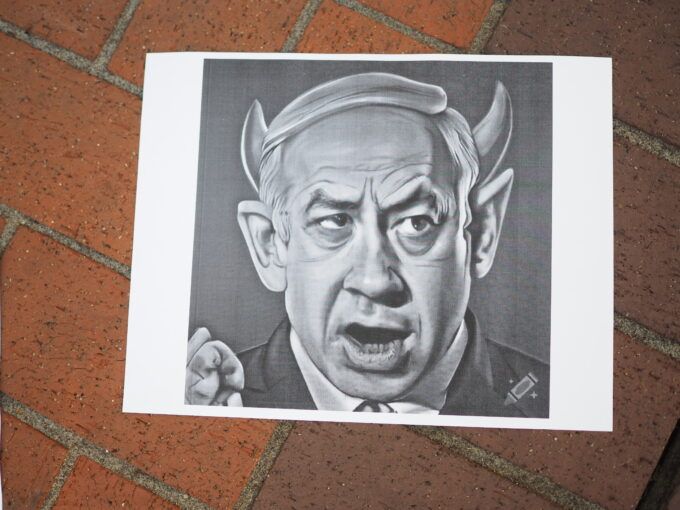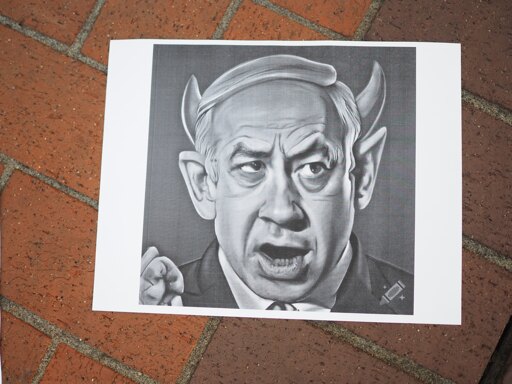
Photograph by Nathaniel St. Clair
The brittle ceasefire in Gaza between Israel and Hamas has, for the moment, brought an end to the relentless bloodshed. More than two million residents of the occupied enclave – and people around the world – will now hope that the truce will hold long enough for a new administration to take shape and begin managing the territory’s recovery in the years to come. Gaza has been utterly devastated. At least 67,000 Palestinians, perhaps exceeding that number, have been killed, including countless women and children; many more have been maimed and permanently disabled. Malnutrition and starvation are widespread. Deprivation is everywhere, with acute shortages of food, shelter, and healthcare. After two years of unremitting bombardment, Gaza must surely be among the most devastated places on Earth today.
The ceasefire has come about largely due to President Donald Trump’s insistence that Israeli Prime Minister Benjamin Netanyahu’s ultra-rightwing government halt the fighting. For two years after Hamas’s surprise attack inside Israel on October 7, 2023, Netanyahu had defied world opinion – and Trump’s predecessor, Joe Biden – continuing his campaign of retaliation. Israel’s uniquely unstable proportional representation system, which enables small ultra-nationalist and religious parties to exercise disproportionate influence in forming governments, left Netanyahu with little room for maneuver until Trump intervened. The Prime Minister also had a personal incentive to prolong his tenure in office amid corruption charges and accusations of genocide and war crimes from the United Nations and the International Criminal Court. Now, alongside Trump, Netanyahu will claim credit for the ceasefire, though his own political future remains uncertain.
Netanyahu’s repeated assertions of “forever war” against Hamas, and to eliminate it, defied the historical pattern showing that in protracted, open-ended conflicts, even the most powerful countries reach a point where the military, economic and moral costs make continuation unsustainable. For Israel – long engaged in conflict with its Arab neighbors – the two-year war on Gaza, alongside hostilities involving Lebanon, Yemen, Syria, and Iran, has extracted a heavy toll in military strength, economic stability, and diplomatic standing. For as long as America’s military, economic, and diplomatic support remained assured, Israel enjoyed a considerable degree of freedom in shaping its policies across the Middle East. However, with Trump’s shifting priorities – particularly his self-proclaimed ambition to be seen as an international peace maker worthy of a Nobel Prize – that assurance began to look less certain.
Trump has remained a transactional figure as president, much as he has been throughout his career. Since beginning his second term in the White House, he has demonstrated an even greater shrewdness in securing what he wants and rewarding those who prove useful to him. His political success this time has yielded substantial personal and symbolic returns. In a striking gesture, Qatar’s ruling family announced the gift of a luxury Boeing 747-8 – valued at approximately $400 million – to replace the current Air Force One used by the President of the United States. In return, Trump signed an executive order, offering Qatar security guarantees following Israel’s attack on the Hamas office. Under the Trump administration’s plan, the aircraft would be refitted for presidential use during his tenure and later transferred to the Trump Presidential Library. Boeing’s separate contract with the US government to supply a new Air Force One has encountered repeated delays.
The Trump family has secured other lucrative business deals in the Middle East and elsewhere. The Trump organization, now run by the president’s sons Eric and Donald Jr., continues pursuing real estate ventures while Trump is in the White House. The organization owns dozens of properties across the world, with current and planned holdings in North America, the United Kingdom, and Indonesia, besides the Middle East. The company operates hotels and golf courses, as well as domestic and commercial real estate. The Trump family has close business ties with Saudi Arabia. In addition to the Trump Organization’s real estate ventures, Jared Kushner – Trump’s son-in-law and former senior adviser focusing on Middle East policy – secured a $2 billion investment from a Saudi sovereign wealth fund led by Crown Prince Mohammed bin Salman only six months after leaving the office.
As Netanyahu’s protracted war on Gaza continued, Trump had become increasingly conscious of Israel’s growing diplomatic isolation. In recent months, a number of countries – including Canada, the United Kingdom, France, and Australia – had extended recognition to the state of Palestine, bringing the total number of United Nations member states recognizing it to more than 155, a substantial majority of the organization’s membership. Significantly, several of these states were among Washington’s closest allies. Trump’s tariff-based trade policies had already generated tensions with other governments, and Israel’s ongoing campaign in Gaza represented an additional and unwelcome complication. Having demonstrated an aversion to foreign entanglements such as the war in Afghanistan, Trump viewed the two-year Gaza conflict as excessively costly – militarily, economically and diplomatically – and his administration sought to distance itself.
Nonetheless, the situation in the besieged Palestinian territory remains perilous. Hamas may have been weakened, but not defeated. Its organization exists, and the group continues to find ways to resist and assert its presence. Skirmishes between the opposing sides persist, as does Israel’s determination to punish the population of Gaza by restricting essential supplies of food and medicine. The shape of the next administration in Gaza remains uncertain. For now, expressions of hope –even jubilation in some quarters – dominate the moment. Yet, the prospect of an enduring truce between Israelis and Palestinians remains far more uncertain.
The post Netanyahu’s “Forever War” on Gaza: What Made It Unsustainable appeared first on CounterPunch.org.
From CounterPunch.org via this RSS feed


